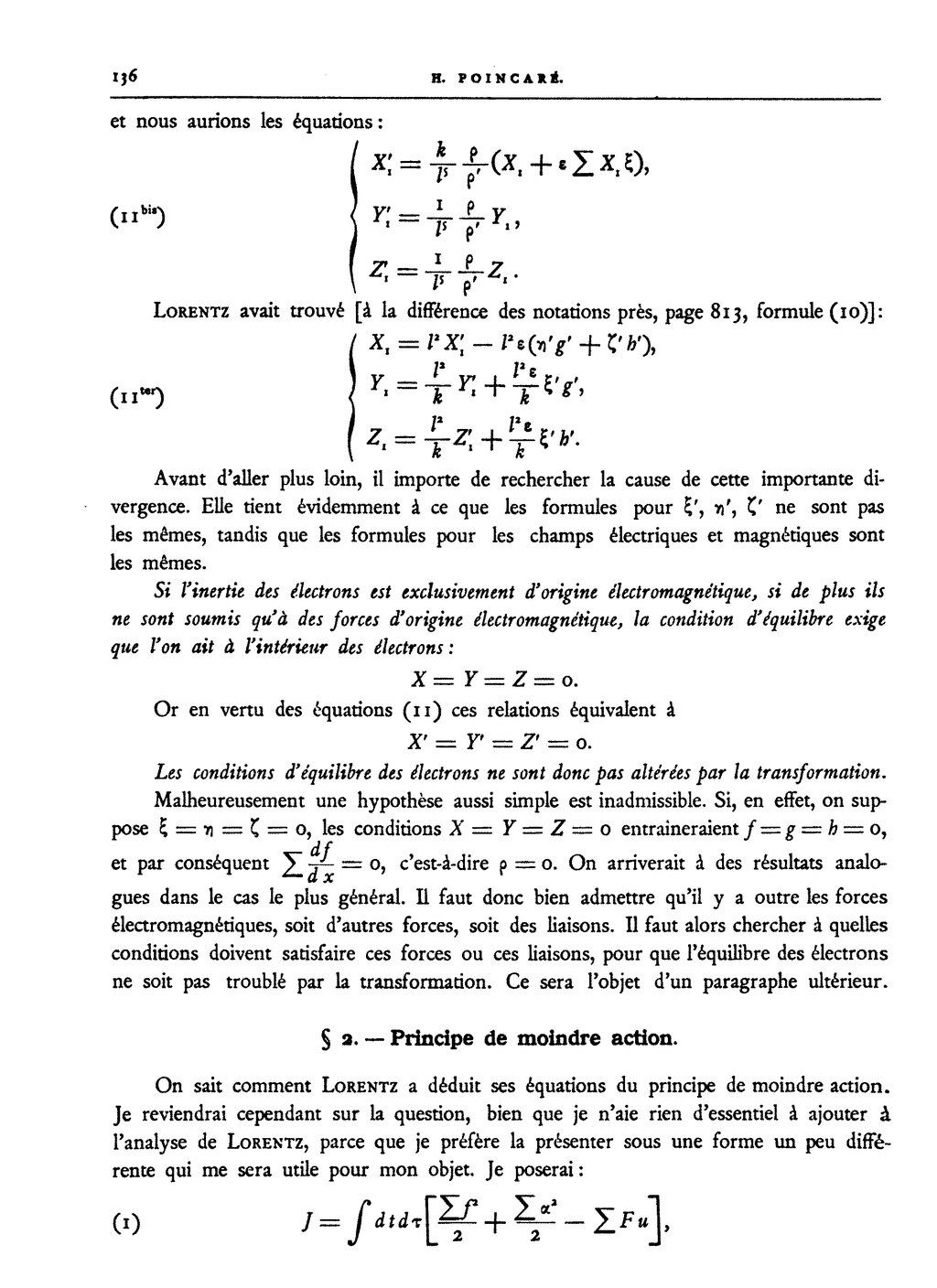and we would have the equations
| (11bis) |
Lorentz found [with different notation, page 813, formula (10)]:
| (11ter) |
Before going further, it is important to investigate the cause of this significant discrepancy. It is obvious that the formulas for ξ', η', ζ' are not the same, while the formulas for the electric and magnetic fields are the same.
If the inertia of electrons is exclusively of electromagnetic origin, if in addition they are subject only to forces of electromagnetic origin, the equilibrium condition requires that we have inside the electrons:
But in virtue of equations (11) those relations are equivalent to
The equilibrium conditions of the electrons are not altered by the transformation.
Unfortunately, a hypothesis as simple as that is unacceptable. If, indeed, we assume , the conditions entrain , and consequently , i.e. ρ = 0. We arrive at similar results in the most general case. We must therefore admit that there are, in addition to electromagnetic forces, either other forces or bindings. It is necessary to search for conditions which must satisfy these forces or bindings, so that the equilibrium of the electron is not disturbed by the transformation. This will be the subject of a later paragraph.
§ 2. — Principle of least action
We know how Lorentz deduced his equations from the principle of least action. I will return to this question, even though I have nothing substantial to add to the analysis of Lorentz, because I prefer to present it in a slightly different form which will be useful for my purpose. I will pose:
| (1) |








![{\displaystyle J=\int dt\ d\tau \left[{\frac {\sum f^{2}}{2}}+{\frac {\sum \alpha ^{2}}{2}}-\sum Fu\right],}](https://wikimedia.org/api/rest_v1/media/math/render/svg/54716fa1f6392697bb0ec7dccb293c761a554485)
